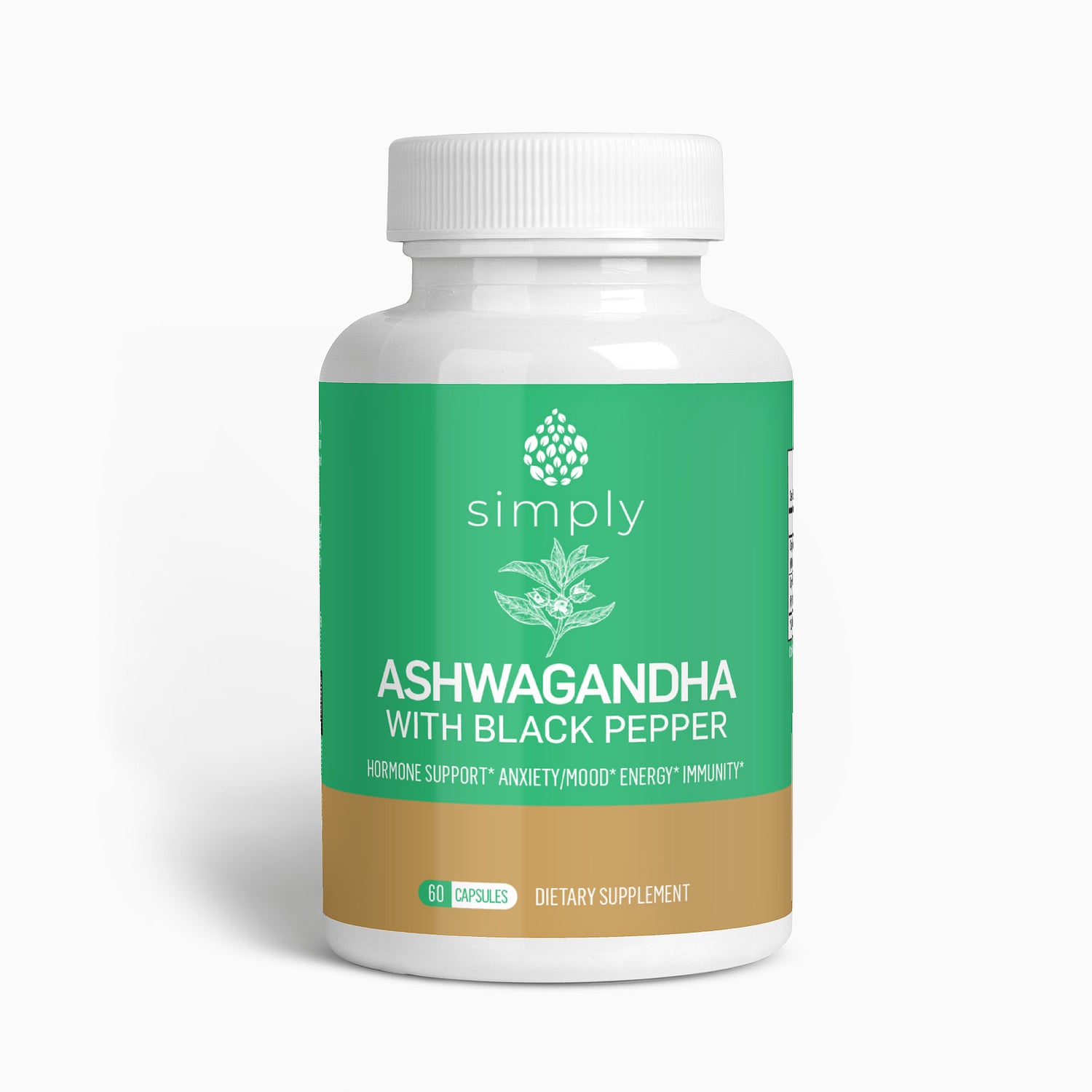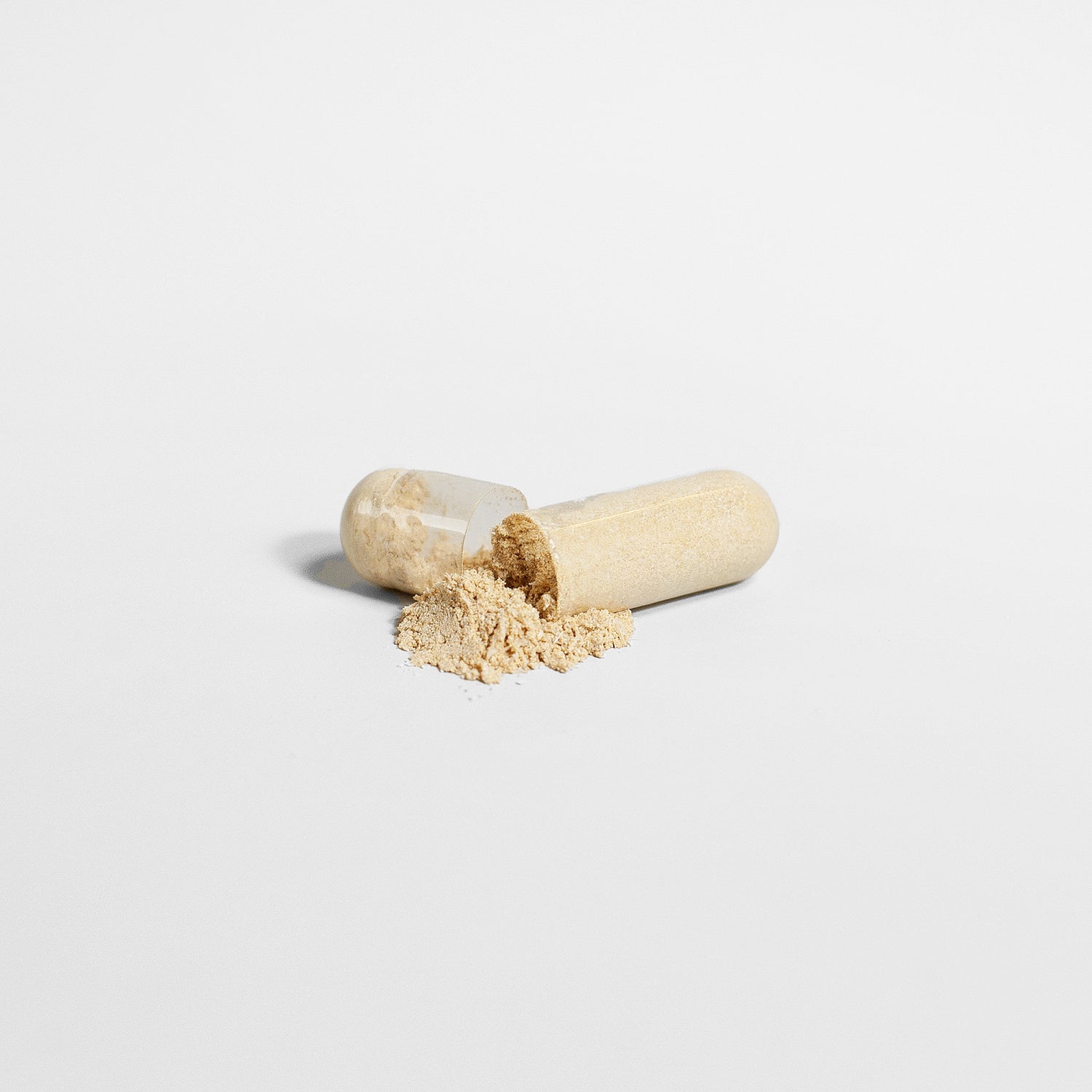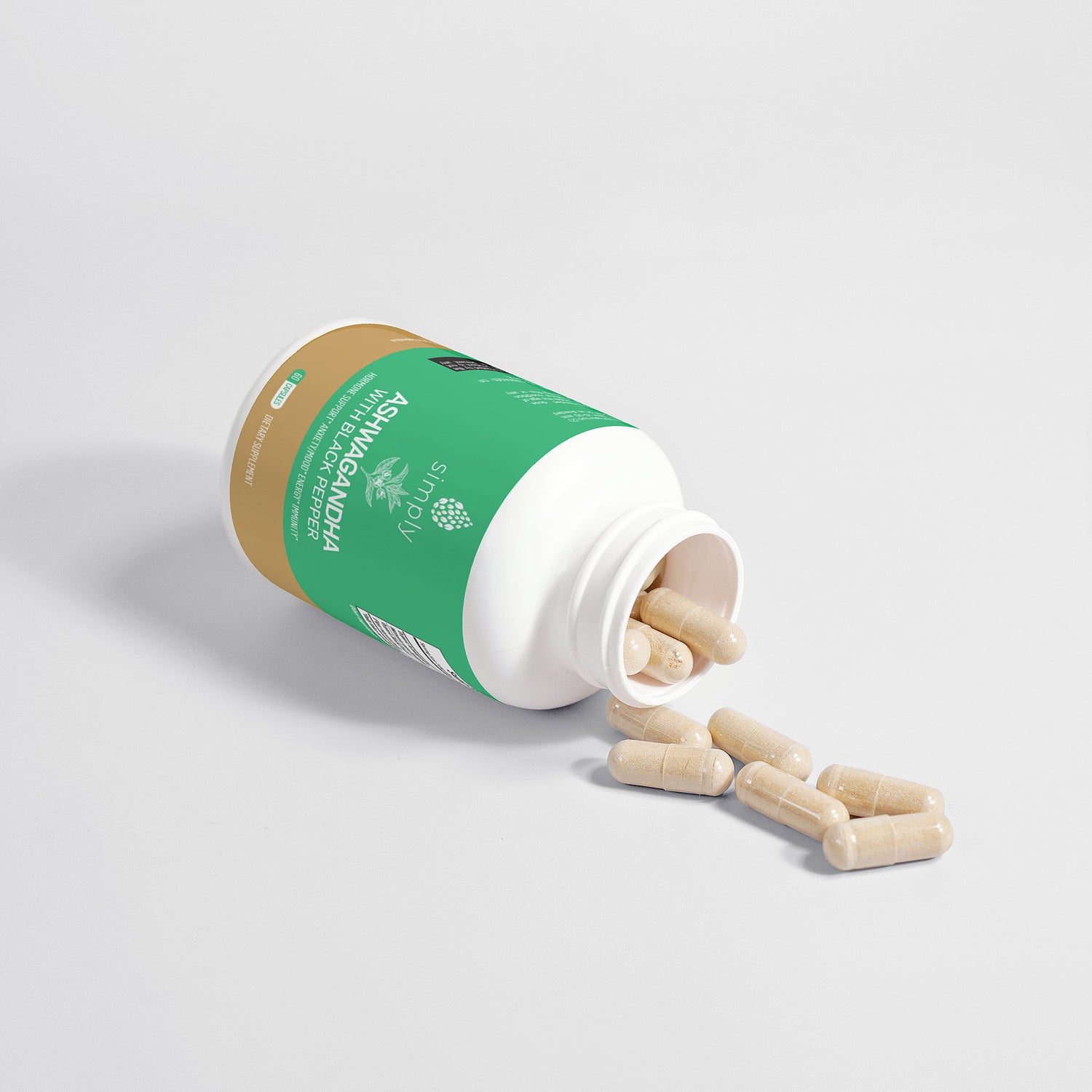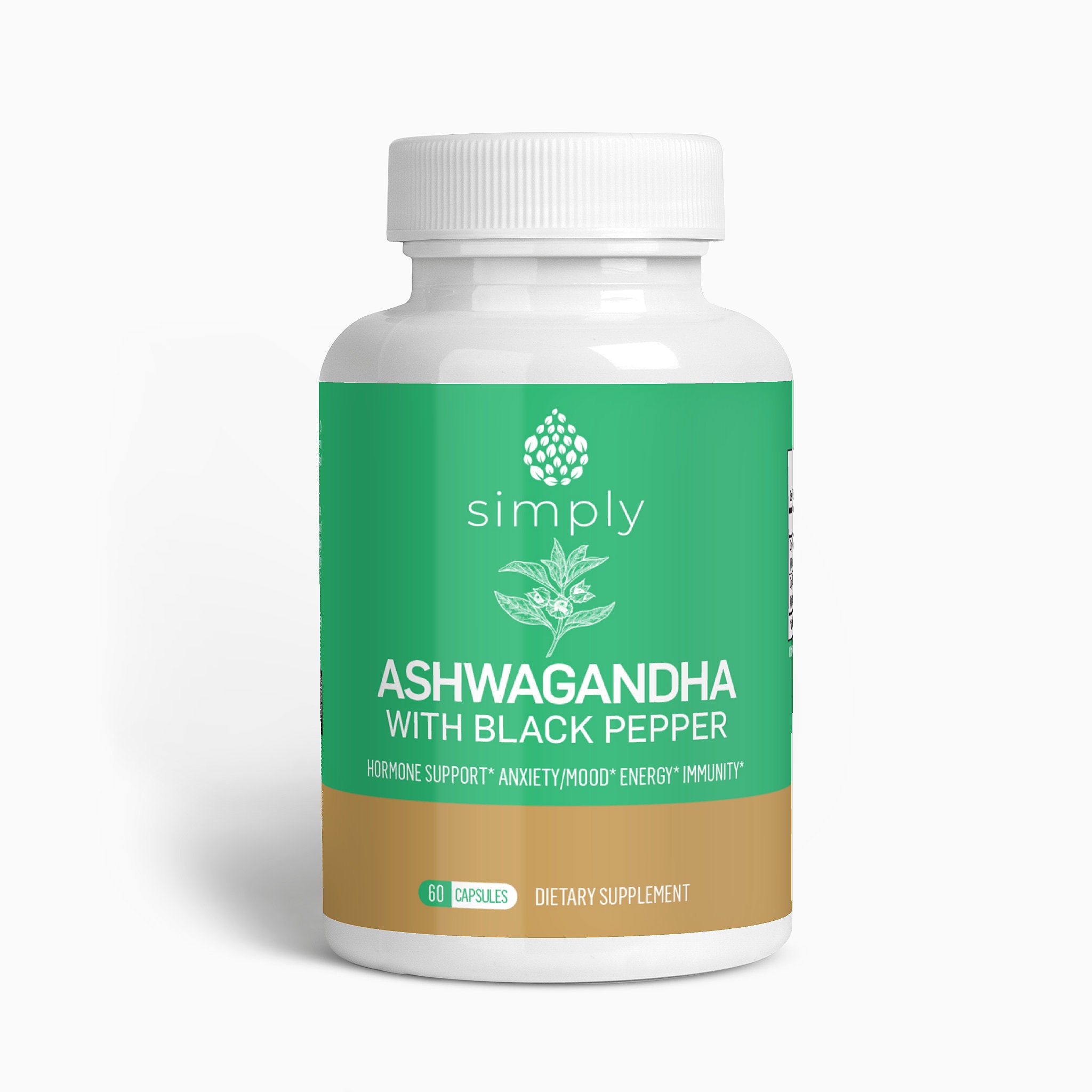
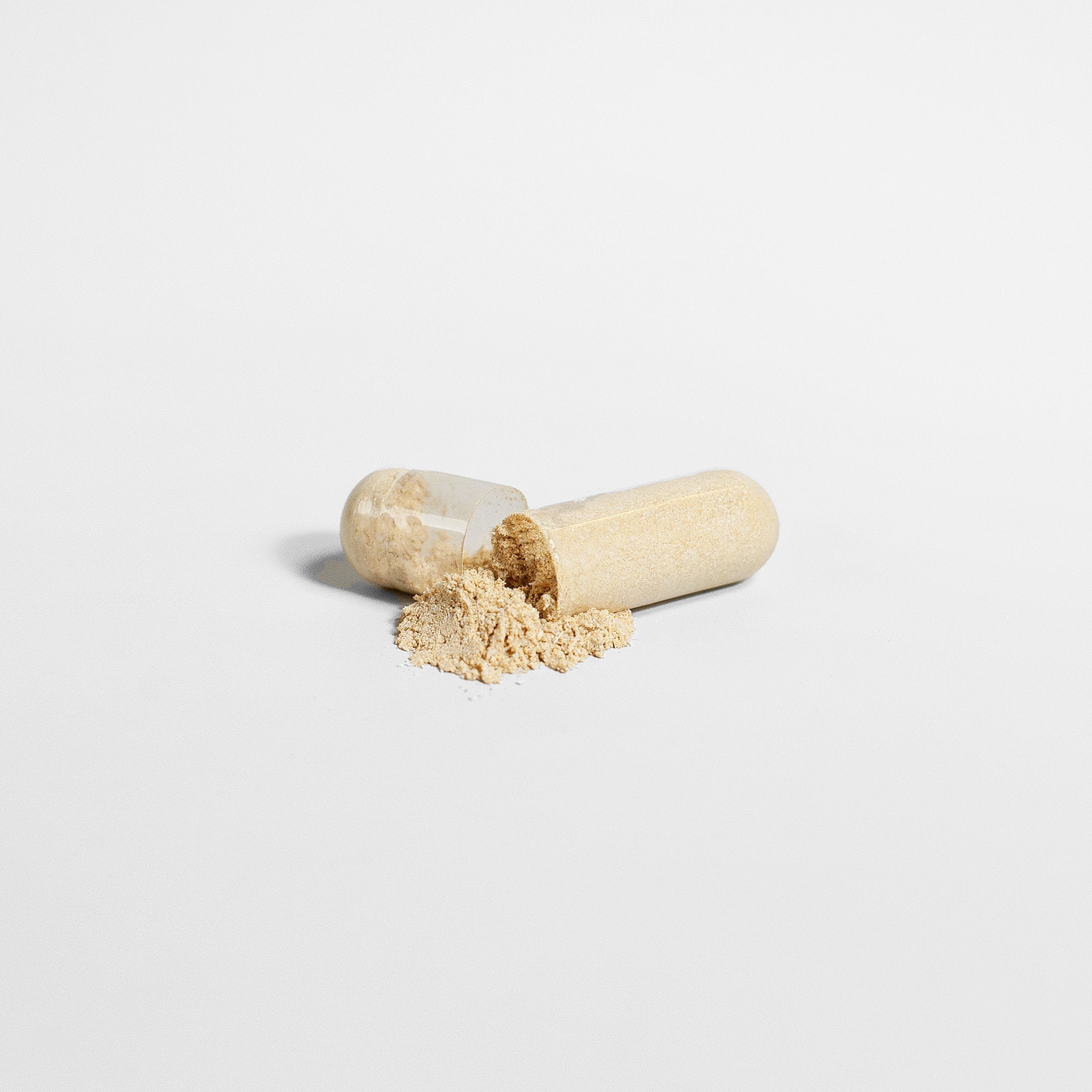
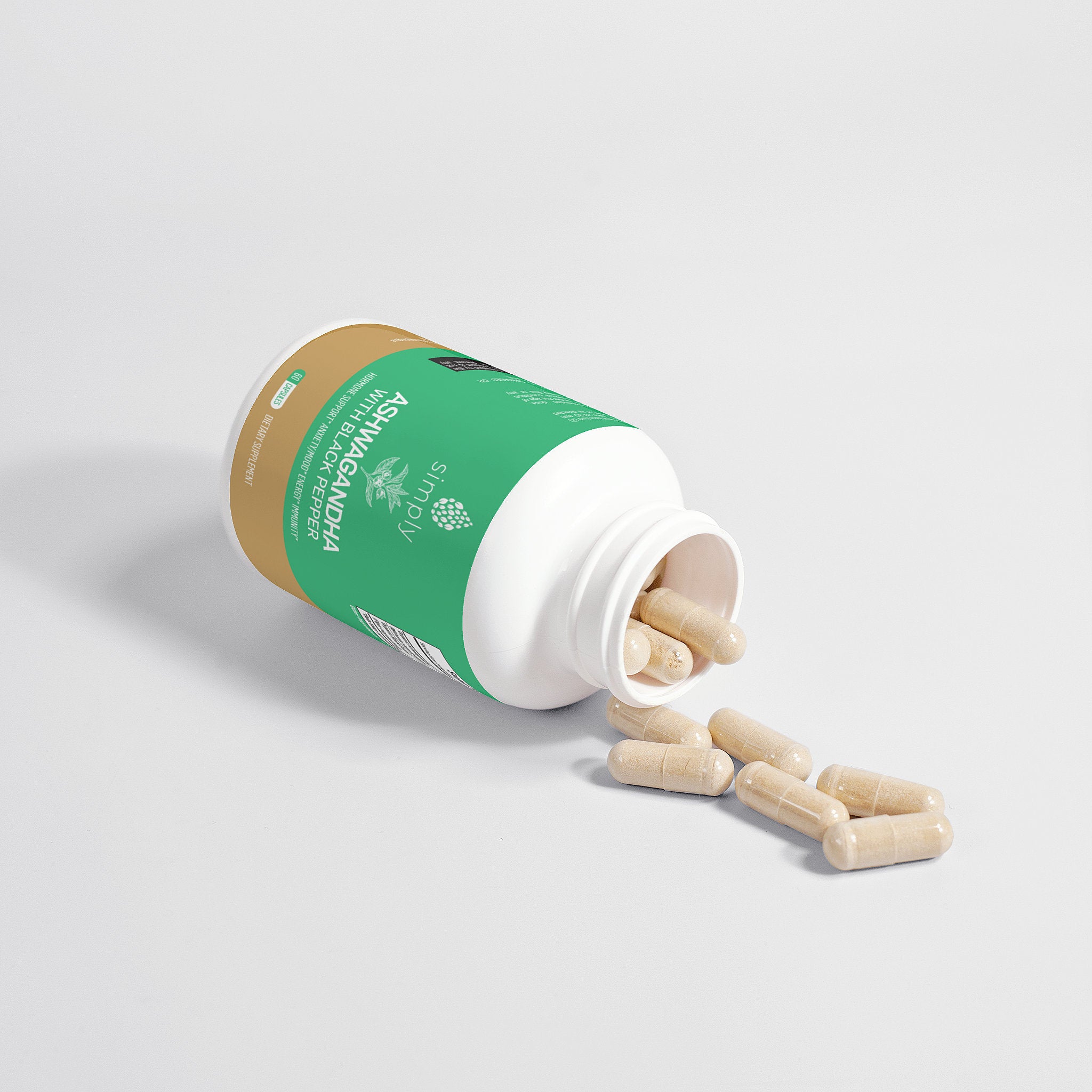

SUBSCRIBE AND SAVE
FAQs
Q: Can ashwagandha make you lose weight?
A: Clinical studies in animals and humans indicate that ashwagandha may help achieve weight loss.
Q: How long does ashwagandha take to work?
A: It can take some time for ashwagandha to begin working within the body, and the duration also varies by individual, as well as by health goal. For instance, it will take longer to see weight loss with ashwagandha than it will take to alleviate stress and anxiety.
Q: Is ashwagandha helpful for bodybuilders?
A: One of the classical uses of this herb was for improving strength and muscle mass, and modern scientific studies indicate that ashwagandha may be able to increase both muscle mass and strength, along with physical endurance.
Q: Can ashwagandha be taken on an empty stomach?
A: Yes, ashwagandha can be taken on an empty stomach. If you experience discomfort when taking it on an empty stomach, consider taking it with a small amount of food instead.
Q: Does ashwagandha help you sleep?
A: One of the classical uses of ashwagandha was as a sleep aid, and the herb’s botanical name (Withania somnifera) also includes a nod to that use. Ashwagandha may be able to help you sleep more deeply and for more extended periods without disruption.
Q: Does ashwagandha cause high blood pressure?
A: It is unlikely, as ashwagandha has been indicated as a blood pressure reducer. Those taking blood pressure medication should consult a physician before taking this supplement.
Q: Does ashwagandha make you gain weight?
A: Ashwagandha is not indicated as causing weight gain. It is frequently used in order to lose weight. However, it may increase muscle mass, which can increase body weight, although it does not increase body fat percentage.
Q: Can ashwagandha be taken with water?
A: Yes, ashwagandha root can be taken with water, with milk, mixed into other liquids, and taken in other ways. One of the traditional means of consumption is to mix it with a combination of ghee, honey, and warm milk.
Q: Does ashwagandha increase testosterone for men?
A: There is some evidence that taking ashwagandha may increase testosterone levels in men as part of the sexual health benefits the herb might offer.
Q: Can ashwagandha improve fertility in men and women?
A: There is evidence that ashwagandha may help improve fertility in both men and women, but particularly in men. This is due to the potential of the herb to increase sperm count, improve sperm motility, and increase semen volume.
Q: Can ashwagandha help improve sex drive?
A: Several clinical studies have shown that ashwagandha may be able to improve sexual health in both men and women, including boosting libido, or sex drive. It is also indicated that the supplement may improve lubrication, ability to maintain an erection, ability to reach orgasm, and reduce or eliminate pain during intercourse for both women and men.
Q: Can ashwagandha help with erectile dysfunction?
A: There is some scientific evidence that supports ashwagandha’s role in alleviating erectile dysfunction. The herb may be able to help with a wide range of sexual health-related problems, and sexual dysfunctions, including erectile dysfunction, inability to orgasm, delayed ejaculation, and premature ejaculation.
Q: Is ashwagandha safe for vegetarians and/or vegans?
A: Yes, ashwagandha supplements should contain only plant material. However, you do need to ensure that you choose the right supplement, as low-quality manufacturers may include a wide range of fillers and other materials.
Q: Does ashwagandha affect hormone levels in the body?
A: Yes, ashwagandha may affect hormone levels within the body. In clinical studies, ashwagandha was shown to affect (increase) the levels of thyroid hormone in the body. Additionally, taking the supplement may reduce levels of cortisol in the body – a stress hormone secreted by the adrenal glands during times of high stress and anxiety.


